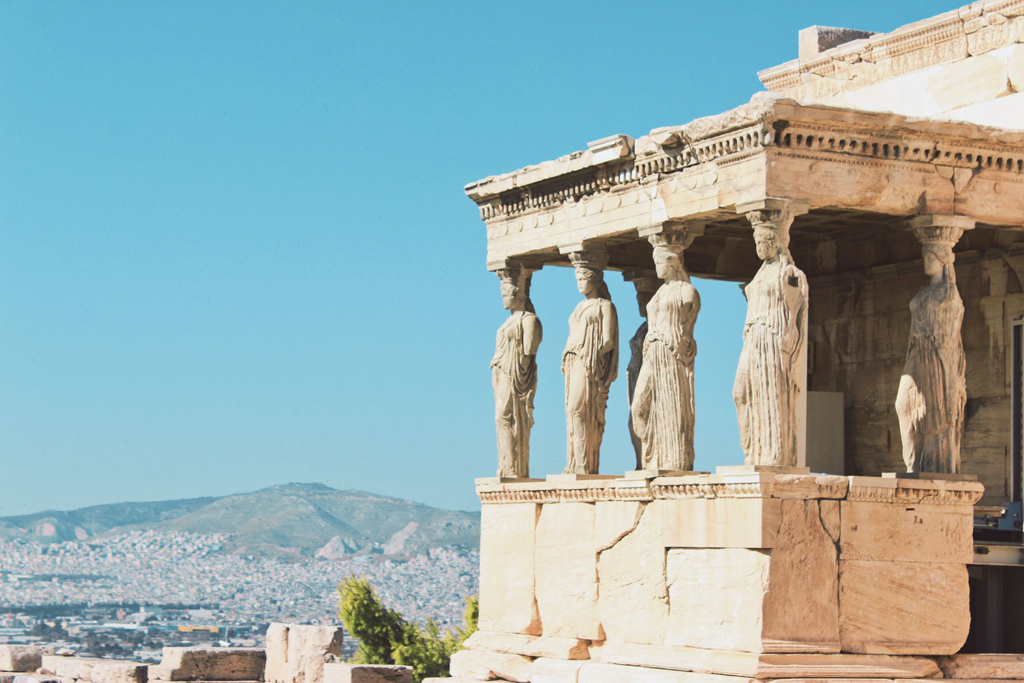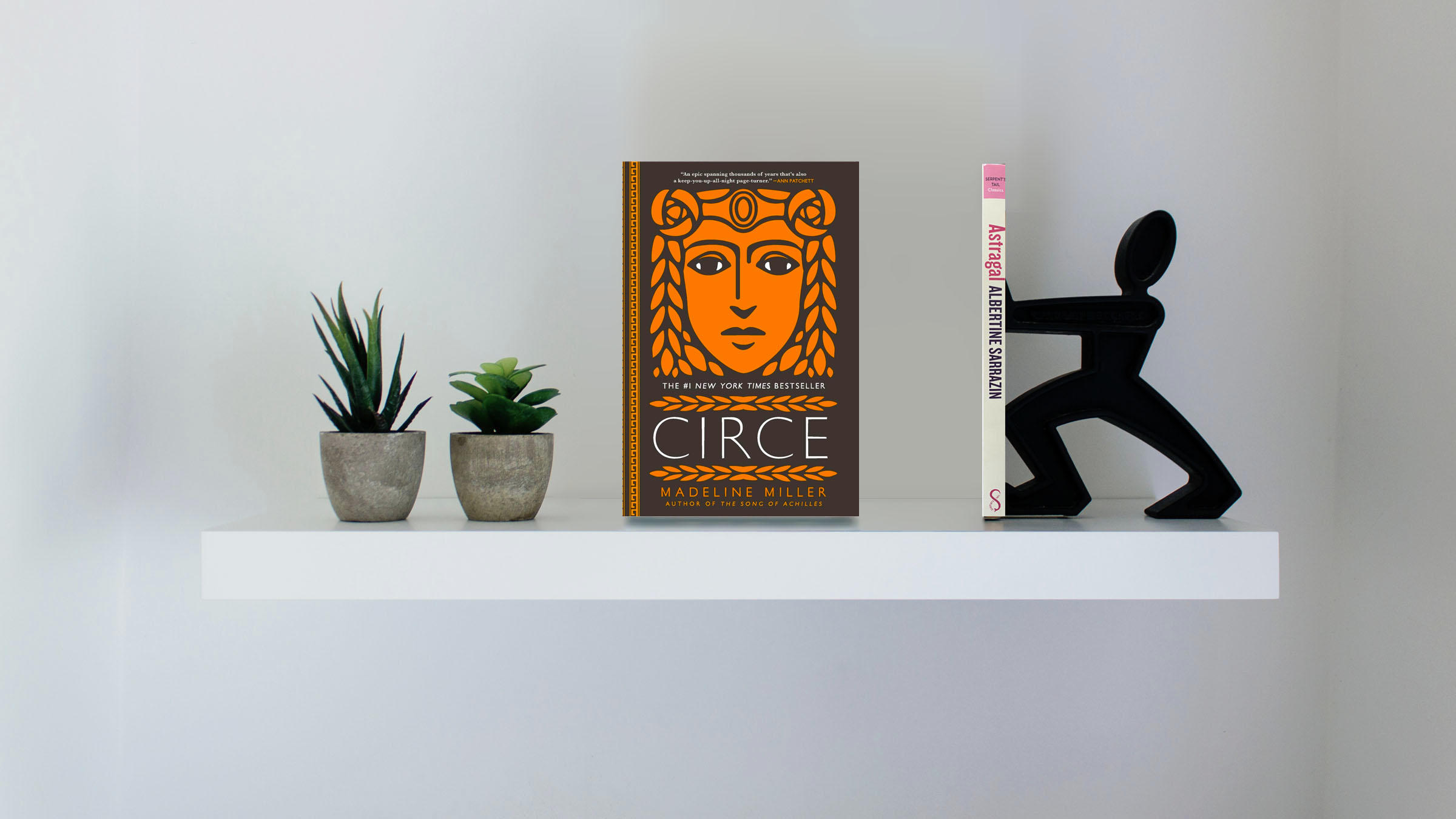Each month, American Express Essentials highlights one definitive literary work, old or new, and across any and all genres. The only determinant is quality: a book that makes life more vivid, more inspiring – a gifted piece of work you want to share. An absolute must-read.
Up this month is Madeline Miller’s Circe, a masterful feminist retelling of the story behind the infamous witch in Homer’s Odyssey. Popular with critics and readers alike, the novel follows the daughter of Helios from birth, with all the twists, turns and epic drama one expects from a (modern) Greek tale.
Let us begin by stating the obvious: the classics are intimidating. ‘Easy’ is certainly not the adjective that comes to mind when most people think about Homeric hexameter or ancient Greek language and society. It’s understandable that some do not even dare approach the repertoire of epics, tragedies and comedies that make up ancient Greek literature. Yet somehow its legacy permeates our everyday language and speech, our literary history, our modern media (hello, Percy Jackson remake) and even some of our most popular customs and traditions (Ever heard of the Olympics? How about the theatre?). From Homer’s poetry to Aesop’s child-friendly fables, the ancient Greeks gave shape to a whole world of inspiration.
It’s in such a place that Madeline Miller’s version of Circe thrives. And, oh, what a fresh perspective it brings! Let’s be honest: the ancient Greeks did many a great thing, but their portrayal of women leaves much to be desired, at least for the modern bookworm. Think about it, how many well-portrayed women can you name in Greek mythology? Helen? Medea? Would you include Penelope or even Athena in your mental list? That’s… four. At best.

Of course, it’s the time period, and obviously one can’t judge ancient texts by modern standards. But still. Sometimes, as a reader, you just want that one character to be more than just a plot device – you want them to be a story. That’s what Miller so gracefully delivers.
Previously (mostly) known for turning Odysseus’ sailors into pigs, and for her year-long liaison with the wily Greek on one of the latter’s many stops along his lengthy voyage back to Ithaca, not much is really known about Circe, at least officially. In some versions of the tale, she’s portrayed as Medea’s aunt, and she’s also sister to Queen Pasiphae, King Minos’ wife. Mostly, though, the main source for anything related to the first sorceress in Western literature is Book 10 of Homer’s Odyssey. Besides that, there are a few snippets featuring her here and there, but nothing too substantial.
That’s probably why the first-person narration featured in Miller’s novel works so well at bringing the character closer to the reader, at giving Circe her very own voice. Amongst displays of magic, Olympian gods, fantastic beasts, gruesome monsters and heroes, it’s her quest for self-identity that makes the book so engaging.
If her preceding book, Song of Achilles, is also to be considered, then Miller is somewhat of an expert in giving new life to well-known, even popular stories, told from a different perspective. And in bestowing canonical characters with originality and truth.
That’s true for her doomed lovers Achilles and Patroclus (seriously, if you haven’t read Song of Achilles, go get a copy now), and for her Circe, who becomes much more than just a reasonless evil sorceress. To Miller, she’s a witch, sure, but she’s also a neglected daughter, a spurned youth, a self-taught apprentice, a lover, a friend, a mother, a mentor. Her character takes on many personas throughout the book. She grows immensely, but also occasionally regresses; she makes mistakes and often finds herself right in the middle of some sort of state of internal turmoil or debate. She’s an extremely well-built anti-heroine. Maybe the best in modern fiction.
Which is exactly what you should read this book as. It’s very tempting to approach it searching for a modern retelling of canonical myths. That’s not exactly what Circe is, and readers should take the story with a grain of salt – some parts do tend to stick to the originals (particularly those related to Homer’s Odyssey), but others appear to be almost entirely of Miller’s creation. She fills in the gaps left by official works with the cleverest of tales and intricate details.
In that sense, the book has something for both classics connoisseurs and for the new reader who is only now approaching mythology for the first time. It’s definitely a great test if you feel you know Greek myths down to a tee, as Miller’s ‘new’ parts, her additions, are sometimes extremely hard to differentiate from the ‘real’ parts. That being said, it’s less a book for purists than for lovers of all things mythological.
Now, if that sort of test is not exactly your cup of tea (understandable), and you just really, really want to get your hands on an exciting read, you and Circe could be a match made in heaven. The story is rife with vivid characters, from Titan divinities to the Sun god, Helios (Circe’s father, proud owner of some very important cattle), Queen Pasiphae (infamously known for having intercourse with a bull and thus giving birth to the bloodthirsty Minotaur, and also in this story Circe’s highly unapologetic sister), an intrepid and doomed Prometheus (who, as protagonist of one of the earliest passages in the novel, sets it off in stellar manner), a terrifying Athena (who stands as Circe’s #1 nemesis), ill-paired Jason and Medea (Circe’s niece, featured in this tale after escaping Colchis), and many, many more. Personally, after reading it, we now have a soft spot for Hermes, cheeky trickster and Circe’s intermittent lover. You’ll have to read the book to find out why. With so many characters and events to showcase, the novel is definitely episodic, and its structure closely resembles that of a picaresque novel. If that’s your thing, you’re in for an exciting ride.
Of course, out of the whole cast of characters that stay in, visit and cross through Aeaea, the island where our favourite witch is exiled to, none are more engrossing than… Circe herself. She’s truly the star here. Miller presents a Circe at her most human: At times naïve (like when she doesn’t suspect the crimes Jason and her niece are guilty of), at times curious (as when she witnesses Prometheus’ punishment for gifting fire to the humans), and other times petulant (for instance, when she turns the Nymph Scylla into a hideous marine monster after a love quarrel) and even vengeful (this one’s pretty obvious: the pigs).
Yet Circe’s never as human, be that a good or bad thing, as when she’s fascinated by the mortals she encounters: “I thought once that gods are the opposite of death, but I see now they are more dead than anything, for they are unchanging, and can hold nothing in their hands… I have a mortal’s voice, let me have the rest.” Particularly, her relationships with Odysseus, Daedalus and Glaucos – while he’s still human – are filled with compassion, curiosity and yearning. And with the struggle of her situation and placement in life: not quite a goddess, not quite human either. Not an Olympian, but still immortal, which, perhaps needless to say, means she’ll outlive any human she forms a relationship with. Her beloved humans – and yes, she does come to love some of them – will all eventually age, wither and die, and she’ll go on. Alive and alone.

Naturally, the depiction of Circe as a powerful woman standing on her own two feet is one of the greatest appeals of the novel. For one of literature’s most denounced female characters to be reclaimed and rewritten as a determined, justified woman – one who has reasons behind her actions, who makes hard choices and who feels – is something seen only in recent years, and Miller perhaps takes the torch for best execution (though Margaret Atwood’s 2005 The Penelopiad stands as a fierce competitor for that medal). Its feminist slant certainly offers a point of attraction for new readers. There are few things as interesting to read as the internal, emotional life of a woman, especially when the subject is one of such power, beauty and duality. That’s where the heart of the story truly lies.
Now, when you take all of these things and add Miller’s enthralling use of language (sometimes reminiscent of the old grammatical structures of ancient Greek texts, sometimes modern and forthcoming), her ability to construct vivid, well-rounded characters, and her pacing of the suspense to keep the reader turning the page, you get a triumphant win of a novel.
And if one thinks about the titanic effort it must have taken to sort through all the sources she must have used to plot and ultimately assemble the story, it’s easy to understand why Circe quickly became a New York Times number 1 bestseller. The book also won the Indies Choice Best Adult Fiction of the Year Award, the Goodreads Choice Awards 2018 for Fantasy Fiction prize, the American Library Association Alex Award, and was shortlisted for the 2019 Women’s Prize for Fiction. And those are only a few of the accolades it received after its publication. Not too shabby. Then again, if ever there was a writer fit to craft such a tale, it’s definitely Miller, who has a BA and an MA from Brown University in Classics, and is a professor of both Latin and Greek.
If you haven’t already stopped everything and either rushed to the nearest bookshop (or ebook seller), take this as a formal invitation to crack open Circe and immerse yourself in her world as you wade through pages filled with magic, humanity and female empowerment.
But beware: you’re likely to devour the tale and not be able to shut up about it. At least that’s what happened to us.














Sorry, the comment form is closed at this time.